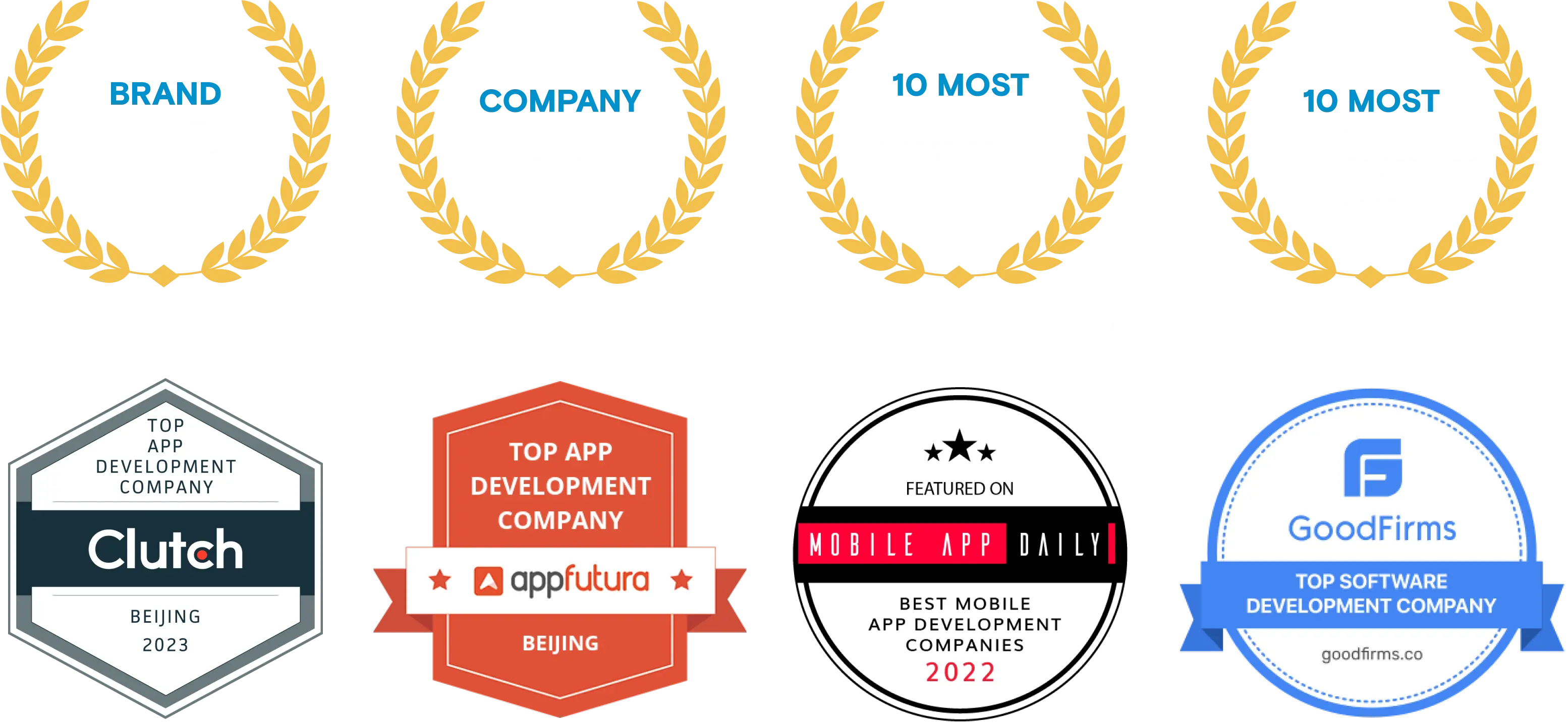Introduction
Scalability and Future-Proofing in Custom iOS App Development
The iOS App Development Process
Designing the User Interface (UI) in iOS App Development
Development Phase in iOS App Development
Testing and Quality Assurance in iOS App Development
Deployment and Post-Launch Support in iOS App Development
Navigating Success in Custom iOS App Development
Introduction
Development Methodologies for iOS App Development
In the ever-evolving landscape of digital innovation, iOS app development stands as a pivotal force, shaping the way businesses engage with their audiences. As mobile applications continue to redefine user experiences, the demand for proficient iOS app development has soared, making it a cornerstone for companies striving to establish a robust presence in the mobile ecosystem.
Choosing the Right Development Approach
The development methodology employed is pivotal to project success. Agile methodologies, with their iterative and collaborative approach, are well-suited for the dynamic nature of Custom iOS App Development. Continuous communication and flexibility are paramount.
Continuous Integration/Continuous Deployment (CI/CD) Practices
Efficient CI/CD practices are indicative of our commitment to delivering high-quality iOS applications. In the realm of Custom iOS App Development, where frequent updates and adaptations are common, we embrace CI/CD practices to ensure seamless integration of new features and bug fixes. This leads to a more robust and reliable application throughout its lifecycle.
Collaboration and Communication Strategies
Transparent and effective communication is the bedrock of successful iOS App Development projects. We value collaboration, keeping you involved in the development process through regular updates and feedback sessions. Whether through project management tools or direct communication channels, a collaborative approach ensures that your vision aligns with the evolving development of your custom iOS application.
Scalability and Future-Proofing in Custom iOS App Development
Building Apps for Scalability
In the dynamic landscape of iOS app development, scalability is a non-negotiable factor. We demonstrate an understanding of your application’s potential growth and outline strategies for scalability. This includes anticipating user base expansion, accommodating future iOS updates, and incorporating emerging technologies that might enhance your application’s functionality.
Adapting to Evolving iOS Versions
The iOS ecosystem undergoes regular updates, introducing new features and performance enhancements. We stay abreast of these changes, ensuring that your application remains compatible with the latest iOS versions. A commitment to staying current showcases a dedication to providing Custom iOS App Development services that stand the test of time.
Incorporating Emerging Technologies (e.g., ARKit, SwiftUI)
As technology evolves, so do user expectations. As a forward-thinking iOS App Development company we are well-versed in integrating emerging technologies such as ARKit or SwiftUI into custom iOS applications. Whether it’s enhancing user engagement through augmented reality or embracing SwiftUI for streamlined app development, the ability to incorporate these innovations set us apart in the realm of Custom iOS App Development.
The iOS App Development Process
Embarking on the journey of iOS app development entails a systematic and multifaceted process that goes beyond mere coding. From the initial concept to the deployment of a polished application, each step in the iOS App Development process demands attention to detail, collaboration, and a keen understanding of the iOS ecosystem.
Discovery and Planning in iOS App Development
Defining Project Goals and Objectives
The iOS app development process kicks off with a crucial phase of discovery and planning. It involves a thorough examination of the project’s goals and objectives. What is the core purpose of the application? Who is the target audience? Establishing a clear vision sets the foundation for subsequent stages in the iOS app development journey.
Creating a Comprehensive Project Plan
A detailed project plan is the roadmap for the entire iOS app development process. It outlines the scope of the project, timelines, resource loading, and milestones. This plan serves as a reference point for both the development team and stakeholders, ensuring alignment with the project’s overarching objectives.
Designing the User Interface (UI) in iOS App Development
Prioritizing User Experience (UX)
User experience is at the forefront of iOS app development, and the UI design phase is pivotal in delivering a seamless and intuitive interaction. Prioritizing UX involves understanding user behavior, creating user personas, and crafting designs that resonate with the target audience. A user-centric approach sets the stage for a compelling iOS application.
Interface Builder and Swift Playgrounds
The use of tools like Interface Builder and Swift Playgrounds streamlines the design process in iOS app development. Interface Builder allows developers to create visually appealing UIs without extensive code, enhancing efficiency. Swift Playgrounds provide an interactive environment for experimenting with code snippets and prototyping, facilitating a more iterative design approach.
Prototyping and Gathering User Feedback
Prototyping is a crucial step in iOS app development, allowing stakeholders to interact with a preliminary version of the application. This iterative process enables the collection of valuable user feedback, which, in turn, informs refinements to the UI and overall user experience. User feedback during the design phase is instrumental in ensuring that the final product meets user expectations.
Development Phase in iOS App Development
Coding with Swift and/or Objective-C
The heart of iOS app development lies in coding with Swift and/or Objective-C. The development team brings the envisioned application to life, implementing features, functionalities, and logic. The choice between Swift and Objective-C often depends on project requirements, showcasing the flexibility inherent in iOS app development.
Version Control and Collaboration Tools
Efficient collaboration is central to the development phase in iOS app development. Version control systems like Git enable teams to manage and track changes seamlessly. Collaboration tools, such as project management platforms and communication channels, facilitate real-time communication, ensuring that the development process remains agile and adaptive.
Iterative Development and Testing Cycles
iOS app development follows an iterative cycle where coding, testing, and refinement are continuous. Frequent testing during development highlights bugs early, ensuring a more stable application. This iterative approach allows for flexibility, accommodating changes based on ongoing testing results and feedback from various stakeholders.
Testing and Quality Assurance in iOS App Development
Importance of Rigorous Testing
Rigorous testing is a linchpin in iOS app development. Various testing types, including unit testing, integration testing, and user acceptance testing, ensure that the application meets quality standards. Testing not only identifies and rectifies bugs but also validates that the iOS app functions seamlessly across different devices and iOS versions.
Automated Testing Tools and Frameworks
The complexity of iOS app development necessitates the use of automated testing tools and frameworks. XCTest and XCUITest, integrated with Xcode, are commonly used tools for unit testing and UI testing in iOS app development. Automation accelerates the testing process, providing rapid feedback to developers and improving overall software quality.
User Acceptance Testing (UAT) and Beta Testing
User acceptance testing (UAT) and beta testing involve real users interacting with the application in a simulated environment. These testing phases in iOS app development ensure that the application meets user expectations, performs reliably, and remains free of critical issues before its official release.
Deployment and Post-Launch Support in iOS App Development
App Store Submission and Approval Process
The culmination of the iOS app development process is the submission of the application to the App Store. This involves adhering to the App Store guidelines, preparing necessary assets, and undergoing a meticulous review process. App Store submission is a critical step, as it determines the accessibility of the iOS app to users worldwide.
Rollout Strategies and Phased Releases
Strategic rollout is essential in iOS app development, especially for large-scale applications. Phased releases allow developers to monitor user feedback and address any unforeseen issues gradually. This approach mitigates risks and ensures a smoother deployment process.
Providing Ongoing Support and Updates
iOS app development is an ongoing commitment. Even after the initial release, providing timely updates, addressing user feedback, and adapting to changes in the iOS ecosystem are crucial. Ongoing support ensures the longevity and relevance of the iOS app in a competitive and dynamic landscape.
iOS app development process is a multifaceted journey that requires meticulous planning, creative design, skilled coding, rigorous testing, and ongoing commitment to excellence. Each phase contributes to the creation of a robust and user-centric iOS application, making the development process not just about coding but about crafting a digital experience that resonates with users in the iOS ecosystem.
Creating a custom iOS app that stands out in the competitive landscape requires meticulous planning and a clear understanding of the
associated costs. The financial investment in iOS app development is influenced by various factors, and developers and businesses must navigate these considerations to ensure a successful and cost-effective project.
Navigating Success in Custom iOS App Development
Aspiring to create a custom iOS app that not only meets but exceeds user expectations necessitates a comprehensive understanding of the factors influencing the development process and the associated costs.
Choosing the right iOS App Development agency becomes a pivotal decision in this journey. We bring expertise, an excellent track record, and a deep understanding of the iOS ecosystem to the table. Whether it’s navigating the intricacies of Swift and Objective-C, adhering to Apple’s Human Interface Guidelines, or integrating emerging technologies like AR and ML, we as an experienced iOS App Development agency is inclined to become your strategic partner in turning ideas into exceptional digital experiences.
In the competitive App Store environment, where user trust is paramount, we focus on privacy, security, and post-launch support Building a successful iOS app is not just a one-time endeavor but an ongoing commitment to delivering value to our clients.
The journey of custom iOS app development is a collaborative effort that involves aligning technical expertise with creative vision. By partnering with us as a reputable iOS App Development agency, we help you embrace emerging trends and meticulously manage costs. Businesses can navigate the path to success and create iOS applications that leave a lasting impact in the digital landscape.
Building Exceptional iOS APPS
For a Digital Future
Embrace the future of digital interactions with our iOS development services. Unlock the potential of your digital future with our expertise. Our commitment to excellence ensures your app not only meets but exceeds industry standards, providing a seamless and engaging journey for your users!
Frequently Asked Questions
Xcode is Apple’s integrated development environment (IDE) for iOS app development. It provides tools for writing, debugging, and testing iOS applications. It also includes an interface builder for designing user interfaces.
Yes, a Mac computer is required for iOS app development. Xcode, the official iOS development IDE, is available exclusively for macOS. Additionally, you need a Mac for testing your apps on iOS simulators or physical devices.
iOS apps can be categorized into various types, including:
- Native Apps: Developed specifically for iOS using Swift or Objective-C.
- Hybrid Apps: Built using web technologies (HTML, CSS, JavaScript) and wrapped in a native shell (e.g., Apache Cordova).
- Cross-Platform Apps: Developed using frameworks like React Native, Flutter, or Ionic, allowing code to be shared across multiple platforms.
To create a user-friendly iOS app interface, one needs to follow Apple’s Human Interface Guidelines (HIG). It is important to pay attention to factors like intuitive navigation, consistent design, responsive layouts, and user feedback. We at axiusSoftware have the required knowledge to align with the guidelines.
The App Store Review process involves submitting your app to Apple for approval before it can be published on the App Store. The review process can take anywhere from a few days to several weeks, depending on factors like app complexity and adherence to guidelines.
There are several monetization strategies for iOS apps, including:
- Paid Apps: Users purchase the app upfront.
- Freemium: Offer a free app with in-app purchases.
- In-App Advertising: Display ads within the app.
- Subscription Models: Charge users on a recurring basis.
- Selling Digital Goods: Sell virtual items or content within the app.
However, it will depend on the type of business you are dealing with.
Push notifications are messages sent to an app from a server or another source. To implement push notifications, you need to integrate Apple’s Push Notification Service (APNs) and use libraries like Firebase Cloud Messaging or Apple’s native tools. We can also use other third-party services as well.
Reflection of Our Commitments
Our teamwork, dedication, and positivity drive us to envision a change for the benefit of all and to make a difference.












